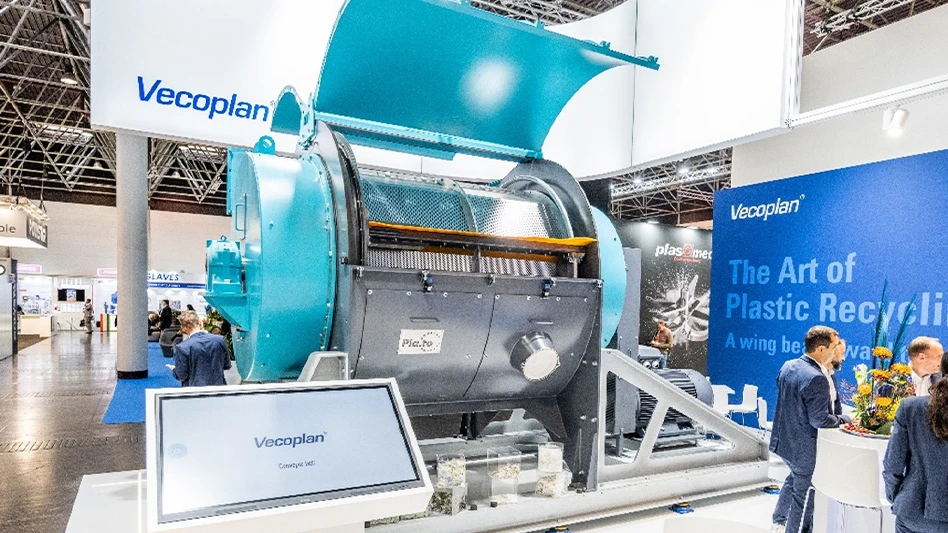
Photo courtesy of Constellium
Paris-based rolled and extrusion-based aluminum products company Constellium has concluded the “ISA3” R&D project, which it initiated in 2021 in partnership with Renault Group, ESI Group, the Institut de Soudure (Welding Institute) and the University of Lorraine.
The project to enhance lightweighting in automotive design, supported by a grant from the France Relance investment program, has set a benchmark for designing next-generation aluminum automotive components that are lightweight, cost-efficient and recyclable.
When the project was launched, Constellium said it would focus on designing and developing aluminum automotive doors that would be 15 percent lighter than current average aluminum solutions, more efficient to produce and recyclable at all stages of their life cycle.
The aluminum door that was co-developed through the project with Renault using Constellium’s proprietary unialloy 6000-series rolled and extrusion-based solutions reduces weight by 14 percent compared with a current aluminum door used in compact battery electric vehicles, Costellium says. By employing a single alloy series, the design also streamlines closed-loop recycling throughout the door’s lifecycle, significantly reducing its carbon footprint, and delivers a 33 percent reduction in global warming potential (GWP). Additionally, the project identified more efficient, flexible production processes while enhancing performance and optimizing costs.
“We are proud of the results of Project ISA3, which highlight Constellium’s dedication to providing sustainable, high-performance solutions for the automotive market,” Constellium Senior Vice President, Manufacturing Excellence, and Chief Technical Officer Ludovic Piquier says. “The innovations achieved through this collaboration demonstrate aluminum’s transformative potential to support the decarbonization of the automotive industry while delivering cost benefits.”
“Project ISA3 has been instrumental in demonstrating how aluminum solutions can contribute to achieving both weight and cost reductions in automotive manufacturing,” adds Patrice Belliard, an expert in flat products at Renault Group. “This project reinforces our commitment to integrating lightweight, sustainable materials into our vehicle designs.”
Constellium’s Aluminum Stewardship Initiative-certified facilities in Neuf-Brisach and Nuits-Saint-Georges, France, supply Renault Group.
“Leveraging ESI Group’s expertise, Project ISA3 relied on advanced precertification and validation technologies, enabling the development and manufacturing of aluminum doors without the need for physical prototypes," ESI Group Manufacturing Project Director Mathilde Chabin says. "This approach has accelerated innovation while reducing costs and environmental impact.”
Latest from Recycling Today
- Equipment from the former Alton Steel to be auctioned
- Novelis resumes operations in Greensboro, Georgia
- Interchange 360 to operate alternative collection program under Washington’s RRA
- Waste Pro files brief supporting pause of FMCSA CDL eligibility rule
- Kuraray America receives APR design recognition for EVOH barrier resin
- Tire Industry Project publishes end-of-life tire management guide
- Des Moines project utilizes recycled wind turbine blades
- Charter Next Generation joins US Flexible Film Initiative





